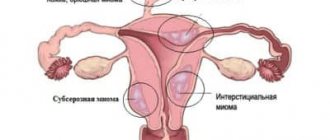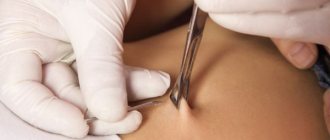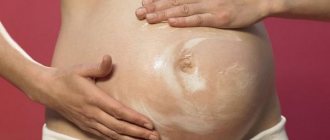Frequent urge to go to the toilet as a sign of pregnancy
Frequent urination during early pregnancy can be considered one of the likely signs of conception.
All this is associated with a restructuring of the bladder, which is not a pathology, as in the case of cystitis. The reason is simple: the uterus begins to increase in size already from the 5th week after fertilization, which accordingly puts pressure on the main organ of the urinary system.
All this is not a mandatory indicator, so you should still rely on an ultrasound scan, indicators of a pregnancy test and a visit to a gynecologist.
Causes of the symptom
Frequent urge to urinate that occurs in women during pregnancy may be associated with physiological and mechanical factors. In the first case, the problem is related to the activation of metabolic processes, since the fetus is constantly growing and requires a lot of nutrients. Hormonal changes are another reason for constant visits to the toilet. From the moment of conception, the body activates the production of the hormone hCG, which causes the desire to urinate.
If we talk about mechanical reasons, doctors associate them with an increase in the volume of the uterus and a change in its usual location. It puts pressure on the bladder and causes irritation. Fetal movements can also cause sudden urges. Another cause of discomfort is a change in the composition of urine with frequent consumption of spicy foods and proteins. The process of urination can also be disrupted due to pathological changes, but they usually manifest themselves with additional symptoms.
Causes of the problem
As mentioned above, the nature of the ongoing process is based on the restructuring of the bladder. The main thing is not to confuse similar symptoms with cystitis, pyelonephritis and other deviations from the norm. All these dangerous diseases of an inflammatory and infectious nature can have a bad effect on the development of the fetus. The consequences of these negative changes can lead to the following disappointing results:
- spontaneous miscarriage;
- premature birth;
- fetal death.
A timely visit to a gynecologist and appropriate tests will help either prevent the problem or solve it as soon as possible.
Before planning a pregnancy, you should be checked for all genitourinary infections so that the expectant mother’s condition is as comfortable as possible.
Preventing frequent urination before and during pregnancy
To avoid negative feelings, you should adhere to these recommendations:
- Limit your fluid intake as much as possible after 6-7 pm (to avoid frequent visits to the toilet at night);
- refuse food that causes increased thirst (spicy, salty or smoked products);
- empty the bladder as much as possible (bending forward helps with this);
- do not refrain from urinating (at the first urge, immediately satisfy natural urges);
- completely eliminate diuretics (rosehip decoction, fruit drinks from some berries, tea, coffee, melons in the form of watermelon or melon);
- ban synthetic underwear (cotton products should be the main accessory of a pregnant woman).
We recommend reading the article: proper nutrition during pregnancy. From it you will receive general recommendations about what is healthy for an expectant mother to eat in the early stages of pregnancy, which foods must be included in the diet and which are absolutely forbidden, as well as tips on choosing food for toxicosis.
First aid for a problem
What to do when it’s already painful to write during early pregnancy? The problem that has arisen should be taken calmly, but it is strictly contraindicated to start the process that has arisen.
Pain, cramping, burning sensations are an alarming signal indicating the presence of an infection in the genitourinary system. It is recommended to immediately visit a specialist and take appropriate tests for the sterility of urine in order to understand the cause of the ailment. Treatment on the advice of friends should also be rejected, because in the future there may be signs of protein in the urine during pregnancy. The protein will indicate the presence of kidney problems, as well as the need to take urgent measures to maintain the pregnancy:
- if the indicator does not exceed 0.14 g/l, it is normal;
- over 0.14 g/l - doctors begin to sound the alarm and first send you for a repeat analysis, and then for treatment, if necessary.
When you need a doctor's help
A pregnant woman is advised to consult a doctor if frequent urination is accompanied by characteristic symptoms. We are talking about elevated body temperature, pain, pain and discomfort. The release of urine in a volume of a few drops should also alert a woman. The listed signs indicate the development of a pathological process in the genitourinary system.
It is possible to prevent complications during pregnancy. It is enough for the expectant mother to closely monitor her health and see a specialist. If you experience any unpleasant sensations, seek help from a doctor.
Ways to relieve frequent urination
Frequent urination during early pregnancy can occur at any time. If it is not possible to visit a specialist in a timely manner, then a few simple rules will help bring temporary relief before visiting a doctor:
- a solution of soda (steam 1 tablespoon of the original substance with a liter of boiling water and consume a spoonful of the resulting mixture three times a day);
- juice from cranberries or lingonberries (pour half a kilogram of berries with 3 liters of water and drink a liter per day for a month);
- regular drinking water in an amount of at least 8 glasses per day until the evening;
- dill herb, taken at the rate of 1 tbsp. l. starting material for a couple of glasses of boiling water (use the decoction a couple of times a day at the rate of a third of a glass before meals);
- birch leaves (7 grams of raw material, pour 0.5 liters of boiling water, after boiling, consume with food three times a day in an amount of 50 ml);
- black currant leaves (infuse 6 tablespoons per liter of boiling water, add sweet flavorings in the form of honey or sugar if desired, and take a tablespoon 5 times a day).
- oat grains in a water bath (a glass of grains to two containers of the same volume of boiling water), intake is limited to half a glass of the resulting decoction three times a day;
- Boil turnip juice for 5 minutes, take 2 tbsp. spoons 2-3 times a day for a month.
All this advice is conditional. The main thing is the recommendations of specialists who will reduce all possible risks in the early stages of pregnancy to a minimum.
Why does pain and burning occur when urinating?
Pain when urinating in the early stages of pregnancy often brings suffering to the expectant mother. The following factors can be provocateurs of an unpleasant syndrome:
- changes in the functioning of the bladder due to squeezing it by the embryo;
- kidney stones caused by pregnancy;
- inflammation of the bladder (cystitis).
Burning sensation when urinating in early pregnancy is caused by the same changes that occur in the body due to fertilization or previously acquired chronic diseases. If pain occurs at the final stage of urination, this may indicate cystitis. This diagnosis implies a number of reasons for its occurrence:
- incomplete excretion of urine, causing stagnation in the genitourinary system;
- general hypothermia of the body;
- damage to the genital tract by infectious diseases.
It is necessary to consult a doctor if you have the following symptoms:
- burning in the lower abdomen or genitals after visiting the toilet;
- admixture of foreign formations such as blood, pus in the urine;
- unusual color and smell of natural secretions;
- general weakness for no obvious reason;
- aching pain in the lumbar region.
Increased urination is normal and as a sign of pathology
Increased urination during pregnancy is in most cases a physiological condition, and a woman should not worry about it. On the other hand, if frequent urination is accompanied by a burning sensation, pain, cramping, or discomfort in the lower abdomen, you should consult a doctor to exclude or confirm the diagnosis of a urinary tract infection.
Frequent urination should not be accompanied by unpleasant sensations, cramps, or nagging pain in the lower abdomen
Physiological reasons
In the first trimester, frequent urination is explained by hormonal changes in the body and increased blood circulation in the pelvic organs. In the second trimester, i.e., from approximately the fourth month of pregnancy, a woman can receive a temporary respite, as the uterus with the growing fetus moves upward into the abdominal cavity, and the mechanical pressure on the bladder weakens. The situation changes closer to childbirth, when the fetus descends and compresses the bladder, reducing its volume. In this state of affairs, the woman again begins to run to the toilet more often, since the bladder fills faster.
Pathological causes
During pregnancy, as a rule, there is a decrease in immunity, because in the opposite case, the immune system may “mistakenly” mistake the fetus for a foreign body and try to get rid of it. Against the background of decreased immunity, the body’s defenses are weakened, and the woman becomes susceptible to many infections, including urinary tract infections. In the later stages, as a result of pressure from the enlarged uterus on the bladder, a violation of the outflow of urine and its stagnation occurs, which contributes to the proliferation of pathogenic microorganisms. Therefore, it is very important not to ignore the possible development of cystitis at different stages of pregnancy. If a woman, while expecting a child, with frequent urination, discovers pain, a burning sensation after completing the act of urination, cloudy urine, and an increase in body temperature, she should immediately inform the doctor about this. In turn, when a woman is registered for pregnancy, the monitoring plan provides for periodic urine analysis, which allows the problem to be identified in time and the correct treatment to be prescribed.
If you experience unpleasant sensations when urinating, pain or burning, you should tell your doctor about them
Increased urination at night
During the day, a woman may not notice a pronounced increase in urination, because excess fluid is retained in the body, often leading to the appearance of edema. Swelling is especially pronounced in the lower extremities. At night, when the body assumes a horizontal position, excess fluid begins to be removed from the body, and the woman has to get up to go to the toilet more often than usual.
Frequent urination before childbirth
About 2-3 weeks before birth, the uterus descends, moving from the abdominal cavity to the pelvic cavity. As a result, the mechanical pressure of the enlarged uterus on the bladder increases, as a result of which it is not able to fill completely and requires more frequent emptying. At the same time, it becomes easier for the expectant mother to breathe, but at the same time, trips to the toilet become more frequent. This condition persists until childbirth, and sometimes even on the first day after childbirth.
Before childbirth, the enlarged uterus puts mechanical pressure on the bladder, so the urge to urinate occurs more often










